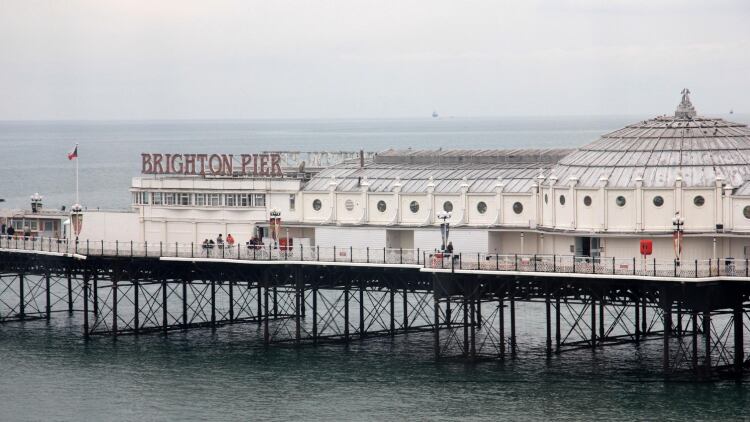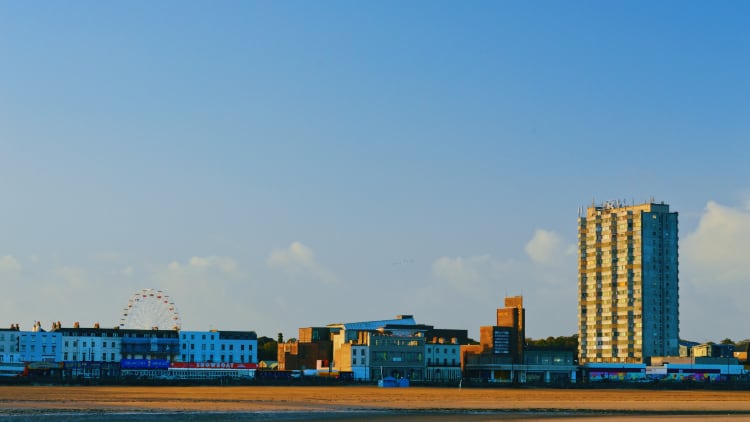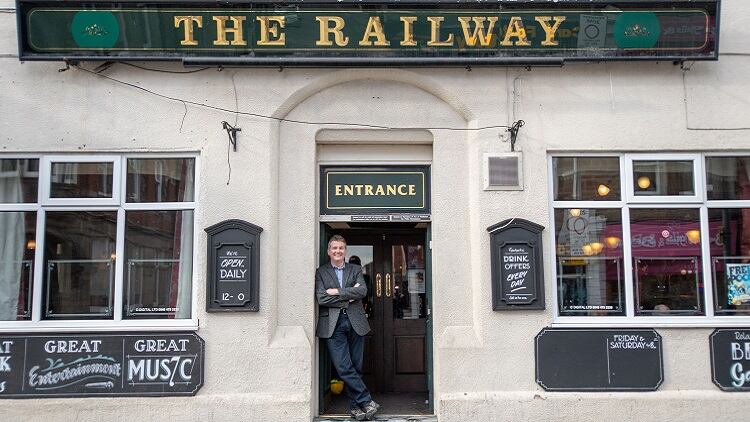In light of a new report by the House of Lords Select Committee on regenerating seaside towns and communities, The Morning Advertiser spoke to pub property experts about the unique opportunities presented by seaside towns, and which locations operators should keep an eye on.
Three key factors
“Our seaside towns comprise a picture of extreme contrast,” Davey Co’s managing director Paul Davey explains. “The most commercially successful incorporate three key factors: regeneration of their urban appearance attracting holiday home and permanent resident investment; education by way of academic institutional location; cultural investment in the arts and events infrastructure. All examples of the most successful seaside towns feature these, and consequently represent fertile trading opportunities for pub, bar and restaurant operators.
“Towns demonstrating this include: Brighton & Hove, East Sussex, - Sussex University, proximity to London commuter hinterland; Padstow, Cornwall, and Burnham Market, Norfolk, – presentational investment attracting affluent staycation leisure, holiday home and permanent residents; Scarborough, North Yorkshire, – investment into a high-quality promenade and harbour entertainment pleasure zone, high-quality pedestrianised shopping area, the Stephen Joseph theatre.
“A combination of these key factors ensures a thriving year-round resident, leisure and holiday trade, mixing term-time student population influx, cultural draw to theatres, exhibitions and events throughout the year, resident trade and quality staycation provision.
“For these reasons the Davey Co top-watch list for up-and-coming seaside towns include Aberystwyth, Folkestone, Margate, Great Yarmouth and Falmouth – all of which feature the key facets stated.”

Market spin-offs
“Few things beat time spent at the seaside, whether that’s spending time on the beach, walking the seafront or enjoying a pint or fish and chips overlooking the sea – it’s difficult to resist the allure of being by the sea,” Sean Donkin, managing director of The Inn Collection Group says.
“Pubs in coastal towns and villages have bags of opportunity for operators. Not only do they offer superb scenery, a raft of watersports and leisure opportunities, have their own regional food and drink delicacies – they’re destination hot spots for tourists while serving as an important hub for locals.
“Operators need to do their homework when it comes to covetable seaside towns to watch. The best ones have a distinctive unique selling point with potential to become vibrant destinations. They should have market spin-offs from trades such as tourism, new industries such as renewables; infrastructure and housing developments.
Up-and-coming seaside towns include Hartlepool, where ambitious regeneration projects of between £50m and £60m are expected to be pumped into this County Durham seaside town over the next few years, including a major redevelopment of the marina waterfront area.
Withearnsea, a seaside resort town in the East Yorkshire, is a focal point for a wider community of villages. Surrounded by miles of beaches, its most famous landmark is its white inland lighthouse, rising to 127ft. It is within easy reach of Hull, Grimsby and a quieter alternative to Bridlington.
Saundersfoot, on the Pembrokeshire coast, has secured funding for a £4m harbour redevelopment. As well as having a great community feel, the town has dynamic plans to become an international destination for tourism.
Reaching both residents and tourists
“Seaside towns have historically been focused on tourism and been dead places in the winter months,” explains Chris Sladen, head of property at Star Pubs & Bars.
“However, while tourism is important, especially as it is predicted to increase in the coming years on the back of hotter summers and a low exchange rate, pub investment is being targeted at the people living year-round in these communities, where it has been lacking previously, and those seaside towns where people are choosing to relocate for a better quality of life or have year-round attractions.
“Falmouth has a strong student market that has increased on the back of the growing art college. The town is also becoming popular as a place to live with more people relocating because of its dynamic atmosphere and developing town centre.
“Weston-super-Mare and its good connections to Bristol is helping people re-evaluate what was once a tired seaside town. More people are moving to the town because of its affordability, location and quality of schools.
“Brighton is a well-established seaside location but is becoming one of places to go to see emerging trends. It's like a mini version of London and Manchester where you spot trends that will spill out into the rest of the country in the next five years. It's a model of what can happen in other seaside towns.
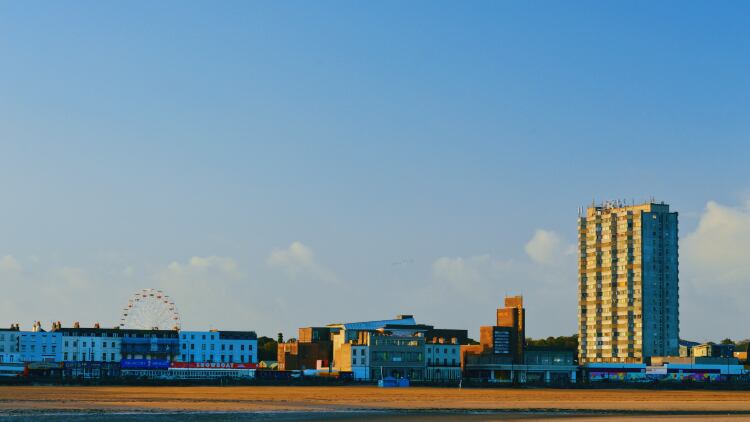
Brexit benefit
“We’ve seen a huge increase in the amount of staycations in the UK in recent years, especially considering the continuing political uncertainty around Brexit, which means that there’s a great opportunity for local businesses in seaside towns to benefit from the increased footfall,” Edwin Mater, regional surveyor at Admiral Taverns highlights.
“It’s great to see investment being generated for these communities that have played a historic part of British life in towns such as Brighton and Cromer in Norfolk, where many will have fond memories of days at the beach with their families.
“A number of our pubs in seaside hot spots benefit from the influx of tourists looking for British sun each summer as well as playing a key role in the local community as a hub for people to meet with friends and family.
“It is a unique opportunity for operators to enhance their food and drink offering to cater to tourists and locals alike, in a welcoming pub setting.”
Undervalued coasts
“What we’ve witnessed in recent years in towns on the south coast is a reappraisal and recognition of the underlying potential of the area,” Shepherd Neame’s head of tenanted and leased operations Greg Wallis adds.
“This has led to investment and a realisation that they are undervalued as places to live, work and visit. In pub terms, there is a legacy of beautiful old buildings from the heyday of the British seaside as a holiday destination, which is a really attractive proposition for prospective tenants looking for a balance of strong business opportunities and a better quality of life.
“We’ve already seen it happen in Whitstable and now the same positive change is happening elsewhere in locations such as Broadstairs, Margate and Hastings.”
Managing seasonality
According to Chris Bickle, licensed leisure director at Savills, seaside towns present opportunities and challenges in equal measure.
He said: “The main consideration is how to manage seasonality; pubs in the strongest locations may see trade increase up to 80% compared to the off-season, so operators need to ensure this is managed effectively, especially during popular periods such as during school and national holidays, or at quieter times during the week or through unseasonal weather.
“Ultimately though, location is key and the best pubs in the strongest seaside locations will always attract customers, particularly if the F&B and room offering is of good quality.”
“The Jurassic Coast stretching from Devon to Dorset has good examples of coastal towns that are appealing to operators. Lyme Regis has a number of pubs nestled in and around the historic harbour and surrounding town, benefiting from visitors seeking a traditional coastal break.
“Seaside locations often attract families or large groups, as well as those embracing an active lifestyle. Amenities such as beaches, estuaries, water-based activities and walking routes are often a huge draw, and with an increasingly activity-led public who are prepared to get outdoors all year-round, the opportunity is there for pubs to service customers throughout the year.
"Furthermore, the provision of rooms will help address the seasonality of the coast by attracting all-year-round visitors, further bolstering the food and beverage income.”
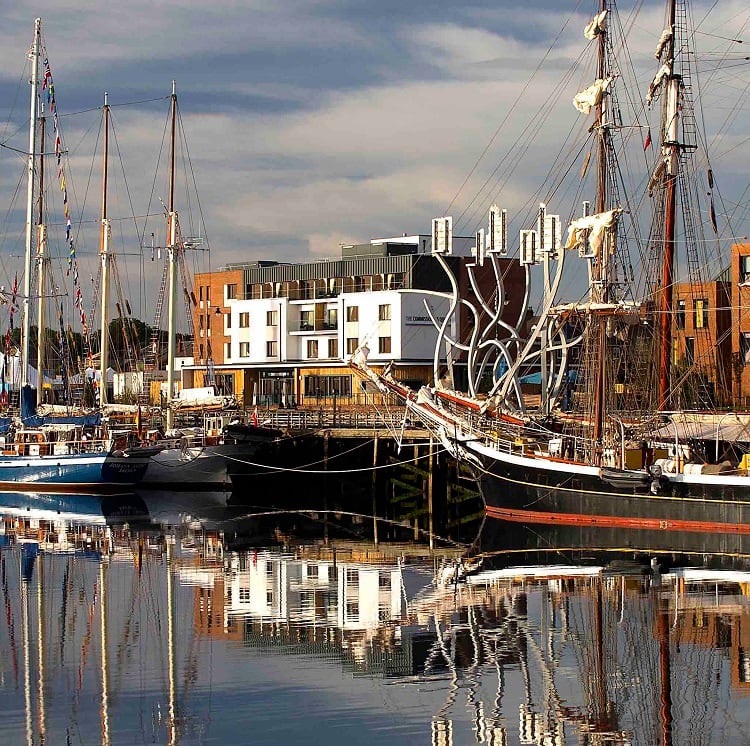
The ’grey pound’
“Britain’s seaside pubs have experienced many ups and downs – not just in terms of seasons but also changes in the habits of the British public,” Simon Chaplin, senior director – corporate pubs and restaurants at Christie & Co, explains.
“There are numerous Victorian seaside towns with large pubs on the promenade across the UK, some of which have disappeared, though there appears to be a resurgence in the fortunes of these towns, driven by a combination of ‘staycations’ and the growth of the ‘grey pound’.
“In the past, these locations have been unpopular on the basis that they are seasonal and the radius for drawing customers is limited because half of it is sea. Now, with pubs having to offer more than a place to drink, the attractions of the seaside have become increasingly important. There is the obvious popularity of locations in the south-west, with Padstow becoming a destination for food and the once-rowdy Newquay has transformed itself into a respectable destination.
“Brighton has long been a favourite, but further along the coast, the Thanet towns of Margate, Ramsgate and Folkestone have enticed new buyers with many interesting independents setting up businesses in the region.
“Other locations around the UK coast have witnessed similar changes, in particular New Brighton in Merseyside, where entrepreneur Daniel Davies is seeking to restore this old seaside town to its heyday when it was a rival to the likes of Blackpool and Scarborough in the north.
“Like they have through the ages, pubs evolve and adapt to changing customer demands and hopefully Britain’s seaside towns are here to stay for the long term.”
To find out more about pubs for sale, lease and tenancy visit our property site.

